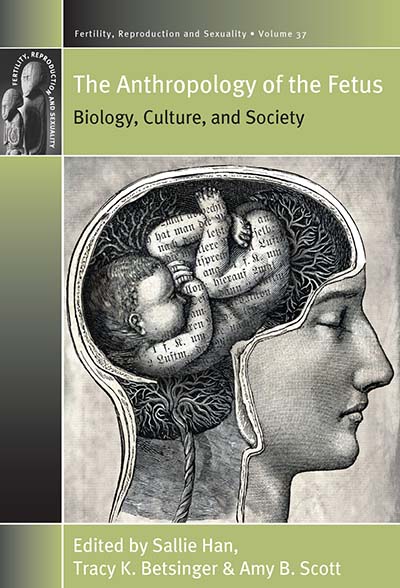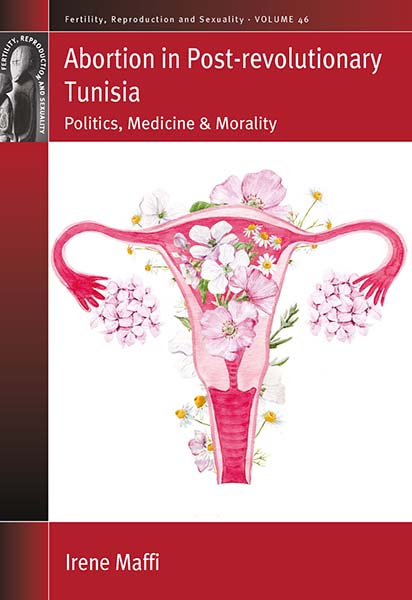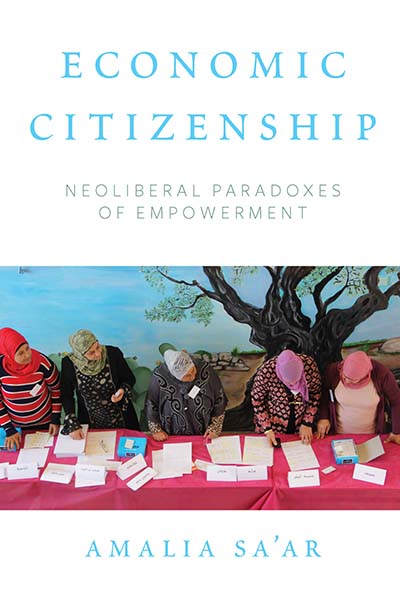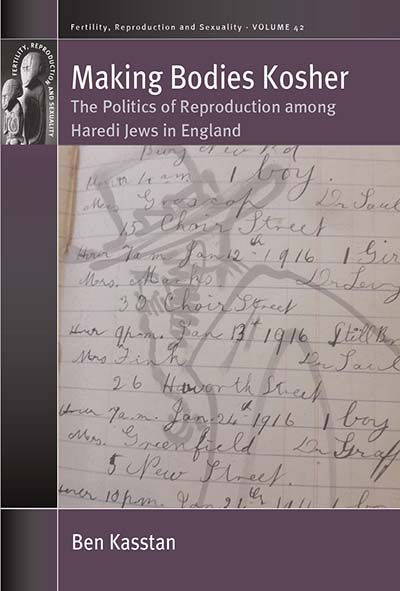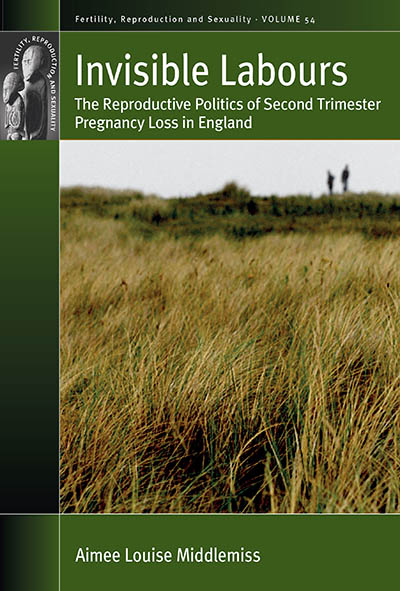
Series
Volume 54
Fertility, Reproduction and Sexuality: Social and Cultural Perspectives
See Related
Anthropology JournalsEmail Newsletters
Sign up for our email newsletters to get customized updates on new Berghahn publications.
Invisible Labours
The Reproductive Politics of Second Trimester Pregnancy Loss in England
Aimee Louise Middlemiss
Full Text PDF | Full Text ePUB Made available under a CC BY-NC-ND 4. license with support from the Economic and Social Research Council and the Wellcome Centre for Cultures and Environments of Health at the University of Exeter, UK.
256 pages, bibliog., index
ISBN 978-1-80539-257-6 $135.00/£104.00 / Hb / Published (February 2024)
Reviews
“This book is both a must‐read and exceptionally timely. There is no doubt Middlemiss succeeds in making the multiple types of pain that all the women in this study experienced visible… Cross‐specialty clinicians (nurses and midwives; obstetricians and gynecologists) will no doubt find this book of interest and the additional angle of vision it adds.” • Sociology of Health & Illness
“This book is encouraged for anyone who works within the fields of labor and delivery, and women’s maternal and reproductive mental health, as the text discussed second-trimester loss in a broader and expanded concept from a binary Pro-Life or Pro-Choice stance. Invisible Labours is also recommended reading for a wider audience to overcome the misconceptions of second trimester loss and provide clarification on the complexities and realities of this specific loss. The book is a poignant tribute to families who have experienced a shift in their reproductive journey, particularly for those who have faced second trimester loss.” • OMEGA—Journal of Death and Dying
“In this original and conceptually sophisticated project Middlemiss handles incredibly difficult interview material with extraordinary sensitivity and care. She does not shy away from difficult details but makes these often very raw stories more understandable through serious analytic work.” • Linda L. Layne, University of Cambridge
“This is an excellent book … As someone working in the field of reproduction/family studies (though not specifically on pregnancy loss), this book has expanded my thinking regarding how legal, medical, kinship systems and cultures come together in defining our understandings of life/death, personhood and relatedness.” • Leah Gilman, University of Manchester
“This is an excellent, well-written, well researched manuscript on an important and timely issue. The book successfully introduces nuance, contestation, and diversity into constructions of personhood in the English context through detailed exploration of second trimester pregnancy loss.” • Susie Kilshaw, University College London
Description
Tracing women’s experiences of miscarriage and termination for foetal anomaly in the second trimester, before legal viability, shows how such events are positioned as less ‘real’ or significant when the foetal being does not, or will not, survive. Invisible Labours describes the reproductive politics of this category of pregnancy loss in England. It shows how second trimester pregnancy loss produces specific medical and social experiences, revealing an underlying teleological ontology of pregnancy. Some women then understand their pregnancy through kinship with the unborn baby.
Aimee Louise Middlemiss is an ESRC Postdoctoral Fellow at the Wellcome Centre for Cultures and Environments of Health, University of Exeter, UK. Her research interests include reproduction, death, personhood, kinship, embodiment, and gender.
Subject: Anthropology (General)Medical AnthropologyGender Studies and Sexuality
Area: Europe
Invisible Labours by Aimee Louise Middlemiss is available open access under a Creative Commons Attribution-NonCommercial-NoDerivatives 4.0 International License (CC BY-NC-ND 4.0) with support from the Economic and Social Research Council and the Wellcome Centre for Cultures and Environments of Health at the University of Exeter, UK.
Full Text PDF | Full Text ePUB
OA ISBN: 978-1-80539-211-8
Contents
Download ToC (PDF)

